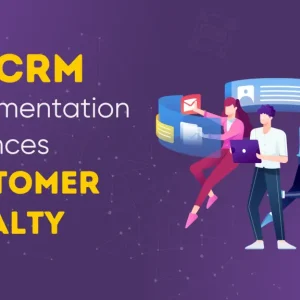Across Africa, businesses are navigating a fast-paced digital economy where customer expectations, regulatory frameworks, and market conditions change rapidly. In such an environment, agility is not just an advantage—it’s a necessity. Business agility means being able to adapt quickly, make informed decisions, and respond to opportunities faster than competitors.
Microsoft Dynamics 365 has emerged as a powerful solution for organizations across the continent, combining enterprise resource planning (ERP) and customer relationship management (CRM) into a unified, cloud-based platform. For African businesses seeking to innovate and grow in a competitive digital era, Dynamics 365 offers the tools to thrive.
The Need for Business Agility in Africa
Africa’s economic landscape is both dynamic and diverse. With a young population, rapid urbanization, and increasing internet penetration, the continent is becoming a hub for digital growth. At the same time, challenges such as regulatory complexities, volatile currencies, and varying infrastructure create hurdles for enterprises.
In this context, agility allows organizations to:
- Respond to regulatory changes swiftly.
- Adjust to shifts in consumer behavior.
- Leverage innovation to remain competitive against local and global players.
Without agile systems in place, businesses risk being left behind in a market that rewards adaptability.
How Dynamics 365 Enables Agility
1. Unified Business Operations
One of the biggest obstacles African businesses face is fragmented systems. Different departments often use disconnected software, making it difficult to see the bigger picture. Dynamics 365 solves this by bringing ERP and CRM together in a single platform. This integration ensures smoother workflows across finance, supply chain, sales, and customer service, reducing inefficiencies and increasing transparency.
2. Scalability and Flexibility
African enterprises come in all sizes, from small startups to multinational corporations. Dynamics 365’s cloud-based design makes it scalable businesses can start with what they need and expand as they grow. Whether a company operates in one country or across multiple African markets, the system adapts to fit their operational complexity.
3. Data-Driven Decision Making
Agility depends on making the right decisions at the right time. Dynamics 365 leverages AI and real-time analytics to turn raw data into actionable insights. Businesses can forecast demand, track customer behavior, and identify emerging trends with greater accuracy. For example, a retailer can predict peak shopping times and adjust inventory accordingly, avoiding costly shortages or overstocks.
4. Enhanced Customer Engagement
Customer expectations are evolving rapidly in Africa, particularly as mobile and e-commerce adoption rise. Dynamics 365 enables businesses to deliver personalized experiences by using CRM data. From tailored marketing campaigns to responsive customer service across multiple channels, companies can build trust and loyalty by putting the customer at the center of their strategy.
Industry Applications in Africa
- Retail
African retailers are increasingly adopting omnichannel strategies, where physical stores, e-commerce platforms, and mobile apps work together. Dynamics 365 helps manage inventory, track sales across channels, and enhance customer loyalty programs. - Finance
The continent’s fintech revolution demands secure, compliant, and flexible systems. Dynamics 365 provides financial institutions with tools to streamline operations, remain compliant with regulations, and enhance customer engagement through digital platforms. - Manufacturing
With growing industrialization, manufacturers in Africa need agile supply chains and efficient production planning. Dynamics 365’s AI-driven tools help forecast demand, manage raw materials, and optimize delivery schedules. - Public Sector
Governments across Africa are investing in digital transformation to improve citizen services. Dynamics 365 offers solutions for transparent governance, efficient service delivery, and better engagement with communities.
The Case for Cloud in Africa
Cloud adoption in Africa is gaining momentum due to cost efficiency, accessibility, and mobile-first usage. Businesses no longer need to invest heavily in on-premise infrastructure; instead, they can rely on cloud solutions that provide security, scalability, and 24/7 availability.
Microsoft Dynamics 365’s cloud-first architecture is particularly beneficial in regions where IT infrastructure is still developing. By reducing the reliance on physical servers and enabling remote access, Dynamics 365 ensures that businesses can operate seamlessly, regardless of location.
Competitive Advantage with Dynamics 365
In a competitive market, the businesses that can adapt quickly are the ones that succeed. Dynamics 365 gives African enterprises a competitive edge by:
- Allowing rapid response to market changes.
- Building stronger, more personalized relationships with customers.
- Reducing costs while driving innovation.
This agility not only improves day-to-day efficiency but also sets the stage for long-term growth.
Conclusion
As Africa continues its digital transformation, business agility will be the defining factor between those who lead and those who lag behind. Microsoft Dynamics 365 provides the platform, tools, and insights needed for organizations to stay flexible, competitive, and customer-focused.
By unifying operations, enabling smarter decisions, and fostering innovation, Dynamics 365 is helping African businesses future-proof their operations and embrace the opportunities of the digital economy.




